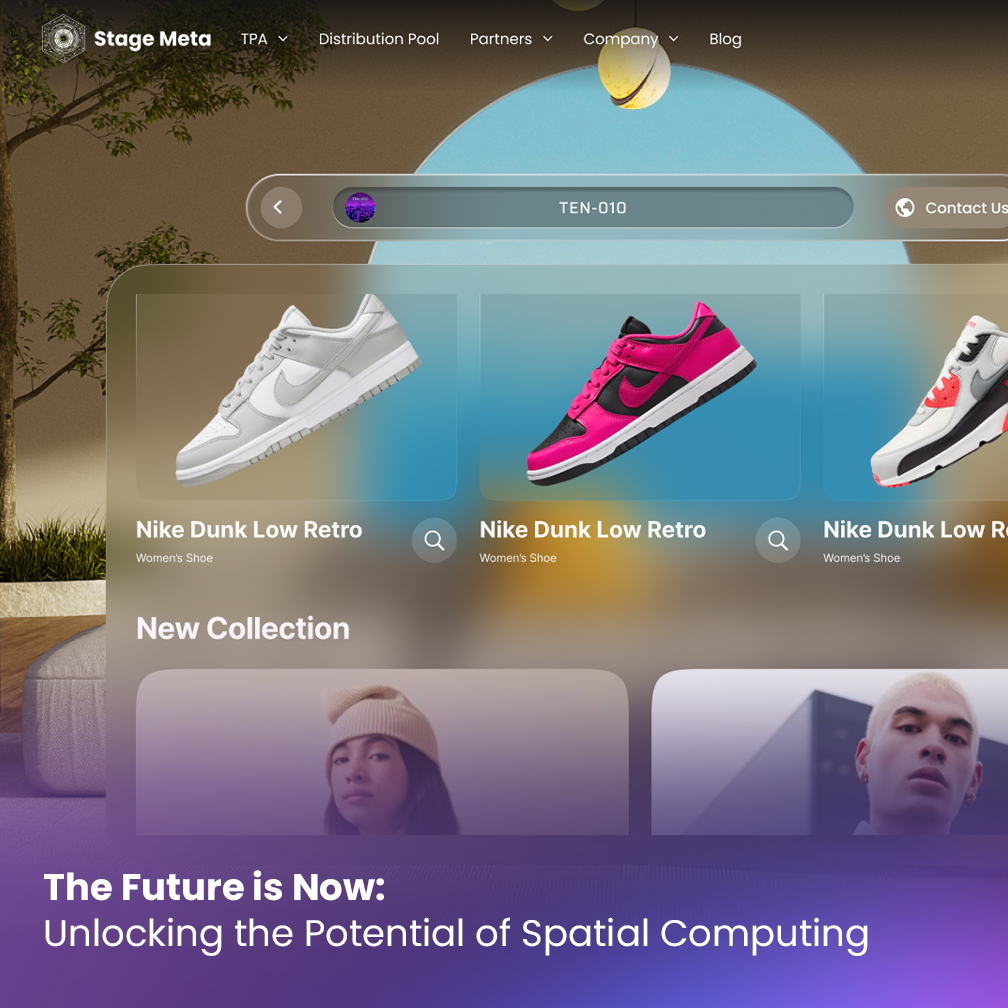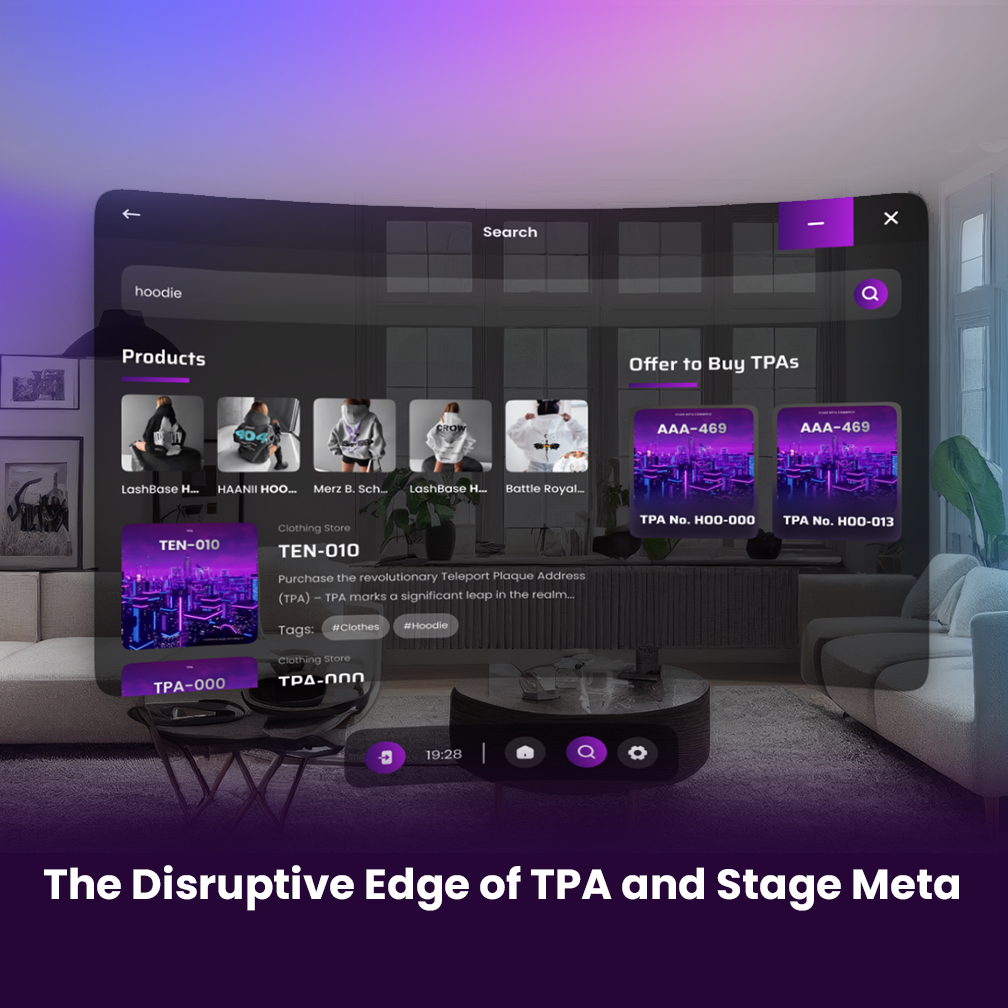Spatial Computing in 2025: A Glimpse into the Future

Table of contents
- Introduction
- Expansive AR Adoption Across Industries
- VR and Remote Collaboration
- Wearable Technology Breakthroughs
- Spatial Computing for Environmental Sustainability
- Privacy and Security Enhancements
- Health care Transformations
- Content Creation and Distribution Platforms
- Conclusion
- FAQs
- What advancements in wearable AR and VR technologies are expected by 2025?
- How will spatial computing transform the retail shopping experience?
- In what ways will spatial computing contribute to environmental sustainability?
- What are the implications of spatial computing for remote work and collaboration?
- How will privacy and security concerns be tackled in the era of spatial computing?
- What role will spatial computing play in health care advancements by 2025?
Introduction
Approaching 2025, the transcending of current limitations by spatial computing is set, offering more immersive, interactive, and intuitive experiences. This technology, encompassing augmented reality (AR), virtual reality (VR), mixed reality (MR), and extended reality (XR), is poised to reshape numerous sectors, from education and health care to entertainment and beyond.
Expansive AR Adoption Across Industries
By 2025, augmented reality expects to be adopted and normalized by various industries. Retailers will provide AR-powered shopping experiences, enabling customers to visualize products in their space before purchase. In education, AR will provide interactive and engaging learning materials that bring complex subjects to life. Meanwhile, in the health care sector, AR will assist in surgical procedures and patient education, improving outcomes and understanding.
VR and Remote Collaboration
The evolution of remote work, which gained momentum in the early 2020s, will see virtual reality becoming an essential tool for collaboration. VR meeting spaces will simulate the experience of in person workshops and conferences, complete with realistic avatars and environments. This will not only enhance the remote work experience but also reduce the environmental impact associated with travel.

Wearable Technology Breakthroughs
The wearable technology that powers spatial computing will see significant breakthroughs by 2025. Expect lightweight, stylish AR glasses that seamlessly blend with everyday eyewear, alongside VR headsets that offer unparalleled visual fidelity without the bulk. Battery technology improvements will allow these devices to last longer, encouraging all day use.

Spatial Computing for Environmental Sustainability
Spatial computing will be instrumental in tackling environmental challenges. Simulations and models running on these platforms will offer insights into climate change impacts, facilitating more informed decision making. Urban planners will use spatial computing to design greener, more efficient cities, while conservationists can create immersive experiences that highlight the importance of preserving natural habitats.
Privacy and Security Enhancements
As spatial computing devices become more widespread, robust privacy and security measures will be paramount. By 2025, progress in encryption and data protection will ensure users’ information remains secure. Additionally, ethical guidelines for the use of spatial data will be established, protecting individuals’ rights in digital spaces.
Health care Transformations
The use of spatial computing in health care will continue to expand, with VR therapies becoming mainstream for treating conditions like PTSD and anxiety. AR will provide real time data overlays during medical procedures, increasing accuracy and safety. These technologies will make health care more accessible, offering remote diagnostic and treatment options for underserved communities.
Content Creation and Distribution Platforms
The growth of spatial computing will spur the development of new platforms for content creation and distribution. These platforms will support a diverse ecosystem of applications and experiences, from immersive educational programs to virtual travel adventures. User generated content will flourish, enabled by tools that simplify the creation of AR and VR experiences.

Conclusion
Looking forward to 2025, it’s clear that spatial computing will play a critical role in shaping our future, mixing the digital and physical worlds in ways we’re only beginning to imagine. As these technologies mature, they promise to enhance daily life, improve how we work and learn, and offer new solutions to pressing global issues. The acceleration of the journey into the spatial computing era is set, bringing exciting possibilities and opportunities for innovation.
FAQs
What advancements in wearable AR and VR technologies are expected by 2025?
By 2025, wearable AR and VR technologies will have experienced significant improvements, making them lighter, more energy efficient, and visually compelling. Battery life improvements and display technologies will allow for longer use, making these devices integral to daily life and professional settings.
How will spatial computing transform the retail shopping experience?
Spatial computing will revolutionize retail by offering AR-powered shopping experiences, allowing customers to visualize products in their own space before purchase. This technology will also provide personalized recommendations and interactive product information, enhancing the overall shopping journey.
In what ways will spatial computing contribute to environmental sustainability?
Spatial computing will play a key role in promoting sustainability by enabling simulations that predict climate change impacts and by aiding in the design of energy efficient urban spaces. It will also offer innovative solutions for conservation efforts, making it a valuable tool in the fight against environmental disintegration.
What are the implications of spatial computing for remote work and collaboration?
Spatial computing will elevate remote work and collaboration by offering immersive VR environments that simulate physical office spaces. These virtual workspaces will foster teamwork and creativity, bridging the gap between remote employees and replicating the dynamics of in person interactions.
How will privacy and security concerns be tackled in the era of spatial computing?
As spatial computing becomes more common, addressing privacy and security concerns will involve developing advanced encryption techniques and ethical guidelines for data usage. These measures ensure user data is protected while keeping the integrity and credibility of spatial computing applications.
What role will spatial computing play in health care advancements by 2025?
Spatial computing will significantly impact health care by offering AR-assisted surgeries for enhanced precision and VR therapies for mental health treatment. It will also enable remote medical consults and training, making health care services more accessible and efficient.
Estimated reading time: 5 minutes
- Spatial Computing Benefits: A Quick Look To 7 Surprising Insights
- Spatial Computing Technology in 2024: Current Landscape
- What are smart contracts on blockchain?
- Spatial Computing: The Future is Now?
- Reimagining Education Through Spatial Computing: A Path Forward
Related posts:
 The Future is Now: Stage Meta Forges Ahead to Unlock the Boundless Potential of Spatial Computing
The Future is Now: Stage Meta Forges Ahead to Unlock the Boundless Potential of Spatial Computing
 Spatial Computing in the Next Decade: The Role of TPA and Stage Meta
Spatial Computing in the Next Decade: The Role of TPA and Stage Meta
 Navigating the Future: The Essential Guide to Spatial Computing for Leaders
Navigating the Future: The Essential Guide to Spatial Computing for Leaders
 The Disruptive Edge of TPA and Stage Meta in Spatial Computing
The Disruptive Edge of TPA and Stage Meta in Spatial Computing





1 Comment
[…] Spatial Computing in 2025: A Glimpse into the Future […]